- Home
- Jeremy Robinson
The Last Hunter - Descent (Book 1 of the Antarktos Saga) Page 2
The Last Hunter - Descent (Book 1 of the Antarktos Saga) Read online
Page 2
“May I be excused?” I ask with a sigh.
Dad chuckles. It’s the kind of chuckle that’s a substitute for calling someone stupid. I’ve heard the laugh enough to recognize the sound. “You don’t need to ask after we told you to go.”
I brush some of my long blond hair, which has garnered more than a few Einstein taunts, out of my face. Mom and Dad wear unreadable smiles. Like they know something I don’t. I hate that feeling—I’ve felt it every day of my life—so I slide off the chair, pick up the large, but light, volcano box and march it upstairs. When I hear mother giggle—just like the kids at school used to—a tear forms in my eye.
I’m such a wimp. No, wimp isn’t the word. That’s like calling someone a chicken. Means they’re afraid to fight—which also describes me—but that isn’t what I mean. Crybaby. That’s the word. One laugh from my mother and I’m all weepy. Of course, the laugh combined with the silly present confirms that they don’t take me seriously. And if they don’t take me seriously, they’ll never notice I’m not a kid anymore—if you ignore the fact that I’m about to bury a bunch of action figures in a miniature volcano—and that means they’ll never reveal the mysteries surrounding my birth. I’m not sure why the day I was born interests me so much. You don’t hear other kids asking about when they were born. But there is something in me, something raw, which longs to know more.
As I near the top of the stairs I wipe my eyes dry and focus on the soft rug lining the stairs. It feels squishy beneath my socks. I find it comforting. Through the banister rungs I see Justin hunkering over a fishing lure case filled with odd toys. I scuff my feet, sliding sock against rug. I walk like that all the way to the bedroom doorway.
“Put out your hand,” I say.
Justin does.
I reach out a single finger and touch it to Justin’s palm. A tiny blue arch of electricity zaps between us with a sharp crack. Justin yelps and flinches away, knocking over the box of toys. “Hey!” he shouts and then moves to retaliate with a finger flick.
I put the volcano box between us and raise an eyebrow.
Justin pauses. “Ugh, fine. Oh! I almost forgot.” He fishes into his pants pocket and pulls out a clear blue cassette tape. Then he closes the door. “My cousin made this for me. Said my mom wouldn’t let me listen to it.”
He puts the cassette into the shoebox sized tape-deck and hits play. Loud music, unlike anything I’ve heard before, fills the room.
I place the volcano box on the floor and let Justin tear into it. I sit down on the bed hearing the music, but not really listening. My eyes turn to the wall, where a five foot by five foot poster of Antarctica is tacked up. I’ve marked all the active United States bases—McMurdo, Amundsen-Scott, Palmer, Siple, Willard—as well as some of the larger foreign stations. A bright green circle marks one of the few bases that no longer functions: Clark. Snow and ice buried the site within a year of my birth. How does something like that happen? Even on Antarctica. Just another one of the mysteries no one seems to know anything about.
Though I haven’t been there since shortly after my birth, I miss the place. I’ve become an expert on the continent and hope to return when I’m old enough. There are so many interesting aspects of Antarctica I long to explore. The founder of Clark Station, Dr. Merrill Clark, is my personal hero. His search for evidence of a human Antarctican civilization—my geographic ancestors—captivates me. And I want to follow in his footsteps.
But it will be a long time before that can happen. I doubt my parents will let me go until I’m eighteen and they can’t stop me. Of course, I do understand some of the reasons I’m not yet able to go. I might be smarter than most adults, but I’m also smart enough to know I have the emotional fortitude of an eight year old. Happens with smart kids, I’ve read. Understanding how awful the world can be is hard for someone without emotional defenses. I should be more concerned with the outcome of the daily ant battles waged on our sidewalk than the starving children in Ethiopia. I stopped watching the news a year ago. The images tended to fuel my imagination, which was not a good thing.
I’m painfully shy, especially around girls. I’m quick to cry, especially if someone is angry with me. And, though no one knows it, I’m afraid of the dark. Not just afraid, I’m terrified of the dark. It’s not a fear of what might lurk in the shadows, closets or under the bed. I’m afraid of my own thoughts. When my imagination is freed from the coils of intentional thought, it drifts to places far darker than deepest black. The horrors of school, of starving kids on TV, and of my parents’ mortality are passing thoughts by comparison.
I sometimes wonder if the dark thoughts are a true reflection of what lies within. Of my soul.
The words of the music finally sink in. “What’s a brick house?” I ask.
Justin shrugs as he places a volcano-shaped cardboard cone onto a sheet of plastic.
“Thirty six, twenty four, thirty six. Are those measurements? Is this a song about construction? Why wouldn’t your mother—”
“They're measurements all right,” my friend says with a fiendish grin, then holds his hands in front of his chest like he’s gripping two baseballs. “For boobs.”
My immediate embarrassment is multiplied tenfold when I hear mother clear her throat. I spin toward the door, mortified.
“Forty-five minutes,” she says with a grimace. She closes the door behind her as she leaves.
“Thanks a lot,” putting as much anger into my whisper as I can manage.
Justin, who is unfazed by these events, tugs open the pre-moistened bag of quick drying clay. “Just for the record, your mom is a brick house.”
I rub my socks on the rug.
“Ok, ok!” Justin says. “Just help me put this together. We have forty-five minutes to blow it up.”
I sit down next to him and look at the materials. There’s enough here to make three mediocre eruptions. All for—I look at the box—thirty bucks. There has to be a way to make sure my parents get their money’s worth out of this thing. I smile as the idea comes to me.
* * * * *
We finish forty minutes later. The quick dry clay is solid and authentic looking if you ignore the embedded action figures. Nice knowing you, Snake Eyes. But there are a few invisible modifications. First we expanded the internal cylinder that holds the red-dyed baking soda. Instead of three small eruptions, we will now have one large one. And to make things really exciting, we sealed the top of the volcano. This eruption will be as genuine as I can make it.
We both hold syringes pilfered from a chemistry set. Each contains six ounces of vinegar. “On the count of three,” I say. “One.”
“Is this going to explode?” Justin asks.
“Two.”
“Should we wear safety goggles?” He grins before touching his sports glasses. “Oh wait.”
“Three!”
We plunge the needles into the volcano and inject the vinegar.
The bedroom door opens. “Ok, boys. Time to—”
“Mom, get back!” I shout. But a loud hiss behind me signifies it’s too late. I turn around in time to see the entire volcano, which neither I nor Justin had thought to attach to something solid, erupt—from beneath. The entire cone launches off the floor, spraying red-dyed lava as it spins in the air like one of DaVinci’s airships. The cone tilts, shoots forward, slams into the poster of Antarctica, and explodes. Red gore splashes against the poster and the wall. It reminds me of the Greatest American Hero episode where the voodoo loving villain splatters chicken blood on the walls.
I turn to my mother. Her white blouse is covered in red streaks. There is no humor in her eyes as she looks at Justin and says, “Your mother is on her way,” and then leaves.
“What happened to you?” I hear my father ask. He pokes his head in a moment later, eyes wide behind his glasses. “Oh...geez.”
“Sorry,” I say, eyes on the floor.
When he doesn’t reply, I look up.
He’s trying to mask a smile, but failing mi
serably. “You’re lucky it’s your birthday, Sol.”
“How angry do you think she is?”
“Chernobyl, at least.”
Chernobyl is bad, but nowhere near as bad as super nova. If dad is right, she’ll be over it by morning. I smile back at my father. “It flew.”
My father snickers, looking at the red stained wall. He rubs a hand through his curly black hair. “I can see that.”
The doorbell rings. “That’d be your mom,” Dad says to Justin before leading him from the room. He stops at the top of the stairs and turns back to me. “Clean yourself up and brush your teeth.”
“What about the room?” I ask.
“No amount of scrubbing is going to get that dye out of things. We’ll worry about it in the morning.” He takes one step down and pauses. “Sorry about the poster, Schwartz.”
I hear Justin say a quick, “I see your Schwartz is as big as mine,” from the foyer before opening the front door for his mother.
I look up at the poster. The circle around my birthplace is smudged, the ink running. “Yeah...”
As my mother changes and my father explains the red dye on Justin’s clothes to his mother, I enter the bathroom. Head lowered, I wash my hands and face. With water dripping from both, I reach out and take hold of a hand towel and dry myself. With the towel still over my face, I sigh. I think about my gifts. My birthday. My age. My life in general.
I sigh again. At least tomorrow is Saturday.
I pull the towel from my face and look in the mirror. My skin is white, like snow. My eyes are bright blue. My hair is so blond it only contains a hint of yellow. But I’ve seen all this before and it doesn’t hold my attention. That’s when I see it. Something taped to the shower door behind me. An envelope. On it, the words, “Happy Birthday”, have been written backwards so I can read them in the mirror.
The envelope is in my hand a moment later. I tear into it. My eyes catch sight of what’s inside. I stumble back, sitting on the toilet. As I take out the contents of the envelope, my eyes blur over. I can’t read the words, but I know what I hold. Plane tickets. An itinerary. A map that looks just like the ruined poster on my wall.
“Happy birthday,” the voice of my mother says. I blink my eyes. She’s crouching in front of me, dressed in jeans and a gray Phil Collins T-shirt. She’s smiling.
I wrap my arms around her in a burst of emotion and say, “Thank you.”
My father is standing in the bathroom door. I launch at him, hugging him around the neck, feet dangling above the floor.
When he puts me down, I sniff and wipe my eyes, feeling no embarrassment over the tears. “When are we going?”
“Summer in Antarctica begins in about seven weeks.”
The tears well again, as a single thought repeats in my head.
I’m going home.
2
I can’t sleep. Like the owl that hunts at night, I’ve gone nocturnal. My imagination is in overdrive—Justin would say, “It’s gone plaid.” But it’s actually an improvement. I normally lose sleep to thoughts of awful things. Those frightening images don’t have a chance to manifest tonight. My mind is on Antarctica. What will I see? Penguins? Weddell seals? The South Pole? Where will we go? Can I explore? Who will I meet?
It suddenly occurs to me that Merrill Clark himself might be there. My father has kept in loose contact with him since I was born. They worked together at Clark Station for three summers in a row. I’ve heard my mother tease Dad about Dr. Clark being my real father. She says the same thing about the mailman sometimes, too. So I know she’s teasing. But it implies they’re close. Or were. Of course, it also implies they’re close to the mailman, which makes no sense, because our mailman is a mailwoman.
I also know that Dr. Clark is married. His wife’s name is Aimee. She’s black, which I’ve heard my parents talk about, too. Apparently it’s taboo for people of different skin colors to marry. And they have a daughter, Mirabelle. She’s a year younger than me.
Remembering the daughter makes me nervous. My parents stopped going to Antarctica after I was born. Said it wasn’t a safe place to raise a baby. Maybe Dr. Clark did the same. I know he’s continued publishing about Antarctica, but it could all be based on old research. I make a mental note to ask in morning. I roll over and squint. It’s already morning. The rising sun cuts through the crack in my shade and strikes my eyes.
The nice thing about being home-schooled—at least the way my parents do it—is that I pick the subjects. I pick where, when and how I want to learn. Not only do my parents trust that I’ll get a better education this way, they feel most kids would too. Dad calls school a “good citizen factory.”
I think my parents were hippies.
But I agree with them.
The point is, I can sleep until noon if I want. And I’ll get more learning done in an hour than most kids will during a full day of school. I roll over and close my eyes. They reopen a moment later.
It’s Saturday.
I’m on my feet and scratching dried red lava from the clock face. It’s not coming off, so I pull the shade and look at the sun’s low position in the sky. It’s September third and the sun is still rising early. I place the time around 6:30, slide into my slippers and head downstairs.
I skip the third and fifth steps because they squeak. I know the sound won’t wake my parents, but I like to pretend I’m a ninja. Five minutes later I’m sitting on the floor, bowl of Cocoa Pebbles in hand. I sit at the long coffee table where my drawing paper and pencils wait.
I pick up the cable remote and remember when I had to get up to change the channel, rotate the top TV dial to U and the lower dial to channel fifty-six. I turn it on and there’s a commercial featuring a bunch of women with puffy hairdos being asked what they would do for a Klondike Bar. Tell a secret? One of the women reveals that her husband works out in his underwear, and I think I’ll never eat a Klondike Bar again. I tune out the next commercial and stuff my mouth with delicious artificially flavored chocolate cereal.
“I wouldn’t do anything for a Klondike Bar,” I say, spraying a few Pebbles on my art pad. “But I’d work out in my underwear for—”
I see something. Not on TV. In the sun room, which is separated from the living room by a large door with twelve small windows. Something inside the room moved. I swallow hard. Some of the not yet chewed, not yet mushy, cereal scratches my throat.
“Dad?” I say. He gets up early on occasion, but I hear no reply.
“Mom?” That my mother would be up this early on a Saturday is ludicrous. I usually don’t see her until ten.
The TV is showing previews of the upcoming programming lineup so I know I have about thirty seconds before Robotech starts. I push the coffee table away, stand up and tiptoe toward the door. I’m a ninja again. Defenseless, but quiet. Of course, the TV has long ago announced my presence.
Maybe there was a burglar? I think. He could have been scared by the TV coming on and fled through a window. Or maybe he’s still in there, waiting for the stupid twelve—make that thirteen-year-old—to check things out.
I think about going to the kitchen for a knife, but I don’t like them. Every time I pick one up, if my mind isn’t on something else, I see myself stabbing whoever else is in the room. I’m an unwilling, mental serial killer.
That’s just one of my unmentionable dark thoughts.
Of course, if I get jumped by a thief, then jamming a knife into him would be completely justified.
With my thoughts full of spraying blood, I feel sick to my stomach. No knife. Not now. Not ever.
I’m at the door anyway and have yet to be jumped. I peek through the glass and scan the small, square room. There’s a couch that pulls out into a bed. It fills up most of the room when opened. And there’s a small desk that gets used once a year when dad does the taxes. Nothing else. No thief.
That’s when I see the living room windows behind me, reflected in the glass of the door. What if I had seen a reflection? My heart b
egins to pound as I realize I’ve made myself an easy target. I feel a tingling on my neck. Hot breath. The presence behind me feels sinister.
Evil.
I spin around with a roar that scares me. My lips are curled up. My teeth grit. My hands, both of them, are open, but tight, like I’ve got claws to slash someone with.
But there is no one to slash. The room is empty.
I’m still scared. Terrified actually. Despite having the dark thoughts for years, this is the first time I’ve seen them manifest into action. The sound that came from my mouth. The roar. It didn’t sound like me. I can’t sustain a cord that deep without my voice cracking like a panicked goose. Worse, I was ready to kill, to tear someone apart. Had there been someone behind me, I would have attacked. It could have been a thief, or my mom, or my dad. It wouldn’t have mattered.
I would have hurt them.
If I’d gone to get the knife I might have killed them.
I look at my hands, still rigid and ready to gouge.
What kind of person am I?
A sharp clap, like two boards of wood slapping together, spins me around with a shout. The noise came from the sun room. I stand there, frozen. The rapid fire beat of my heart surges oxygen to my muscles, readying them for fight or flight. But I can see most of the sun room still. There is no one there.
The sound repeats, this time to the right, and I finally see the source. A shade is drawn over a window that was left open. The breeze outside is pushing the shade away and then snapping it back. I open the door and enter the room. My pulse slows. I pull the shade and send it flying up. Sun blazes through the east-facing window, and a cool breeze bursts into the room. A painting of a lighthouse on the wall behind me shifts and nearly falls. I close the window before righting the painting. As I shift the canvas, something scrapes along the back of it. I think maybe the nail holding it up got yanked out a little by the breeze, so I lift the painting up for a look.

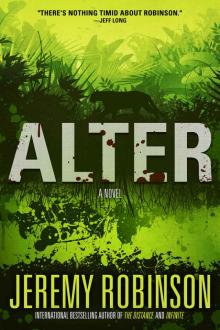 Alter
Alter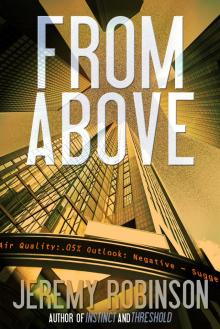 From Above - A Novella
From Above - A Novella Flux
Flux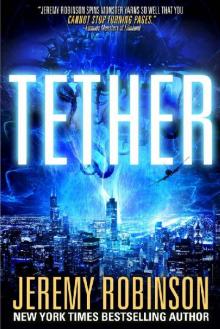 Tether
Tether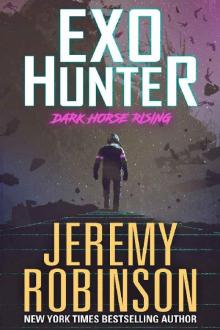 Exo-Hunter
Exo-Hunter Pulse
Pulse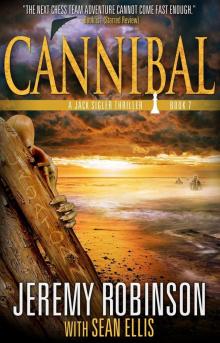 Cannibal
Cannibal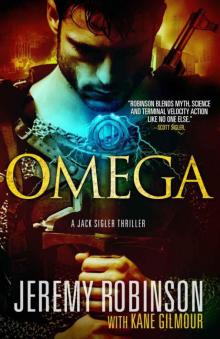 Omega: A Jack Sigler Thriller cta-5
Omega: A Jack Sigler Thriller cta-5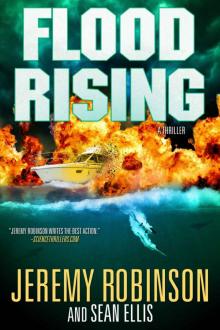 Flood Rising (A Jenna Flood Thriller)
Flood Rising (A Jenna Flood Thriller)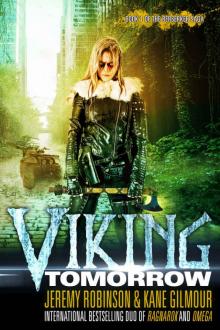 Viking Tomorrow
Viking Tomorrow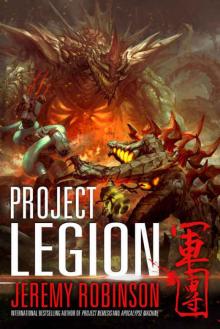 Project Legion (Nemesis Saga Book 5)
Project Legion (Nemesis Saga Book 5)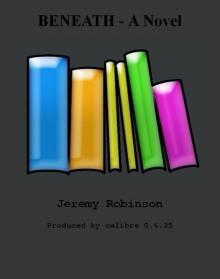 BENEATH - A Novel
BENEATH - A Novel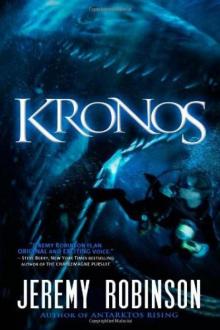 Kronos
Kronos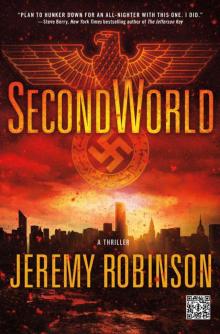 SecondWorld
SecondWorld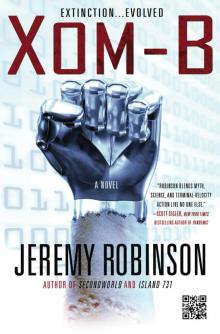 XOM-B
XOM-B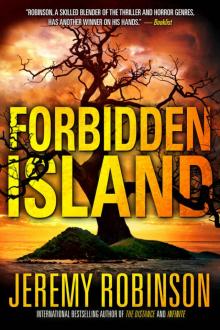 Forbidden Island
Forbidden Island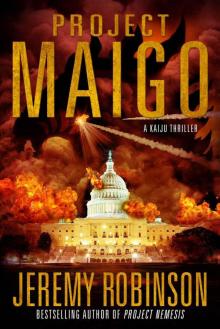 Project Maigo
Project Maigo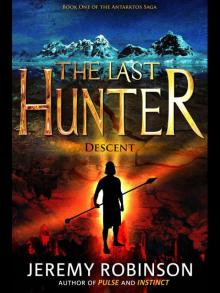 The Last Hunter - Descent (Book 1 of the Antarktos Saga)
The Last Hunter - Descent (Book 1 of the Antarktos Saga)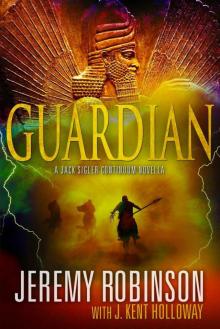 Jack Sigler Continuum 1: Guardian
Jack Sigler Continuum 1: Guardian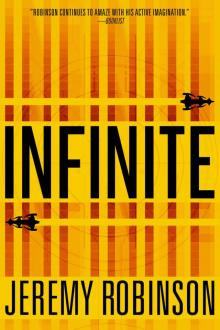 Infinite
Infinite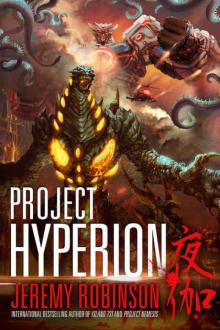 Project Hyperion
Project Hyperion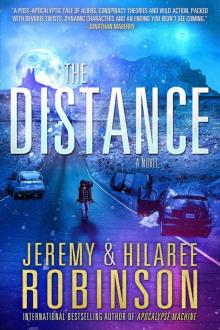 The Distance
The Distance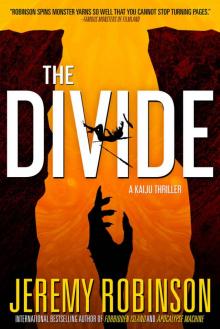 The Divide
The Divide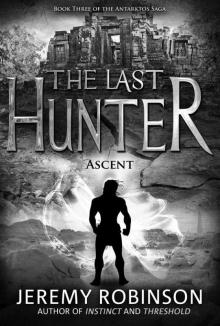 The Last Hunter - Ascent (Book 3 of the Antarktos Saga)
The Last Hunter - Ascent (Book 3 of the Antarktos Saga)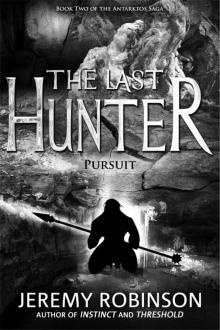 The Last Hunter - Pursuit (Book 2 of the Antarktos Saga)
The Last Hunter - Pursuit (Book 2 of the Antarktos Saga)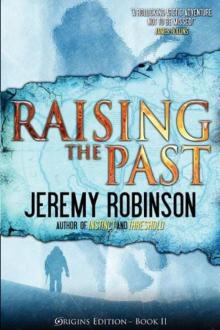 Raising the Past
Raising the Past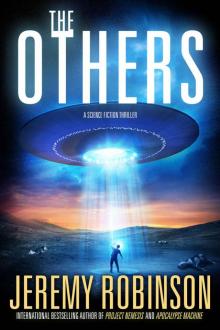 The Others
The Others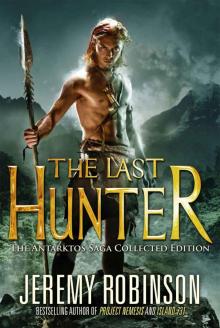 The Last Hunter - Collected Edition
The Last Hunter - Collected Edition Threshold
Threshold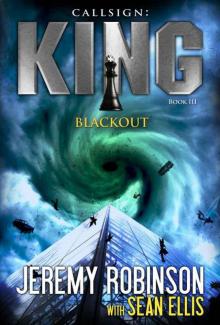 Blackout ck-3
Blackout ck-3 Antarktos Rising
Antarktos Rising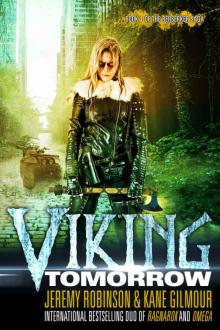 Viking Tomorrow (The Berserker Saga Book 1)
Viking Tomorrow (The Berserker Saga Book 1)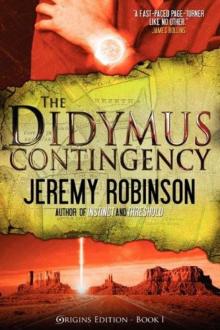 The Didymus Contingency
The Didymus Contingency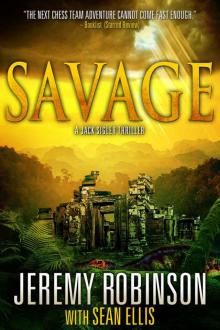 Savage (Jack Sigler / Chess Team)
Savage (Jack Sigler / Chess Team)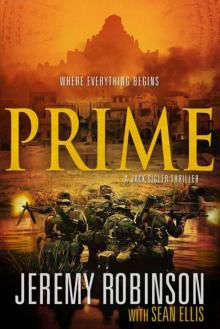 Prime
Prime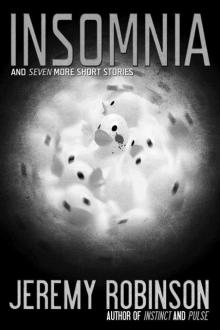 Insomnia and Seven More Short Stories
Insomnia and Seven More Short Stories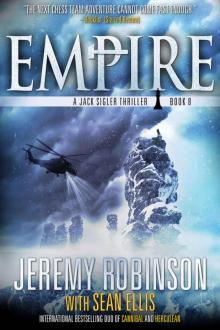 Empire (A Jack Sigler Thriller Book 8)
Empire (A Jack Sigler Thriller Book 8)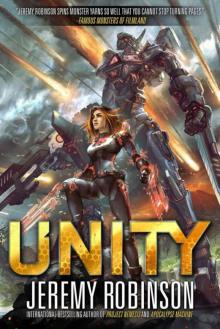 Unity
Unity Instinct
Instinct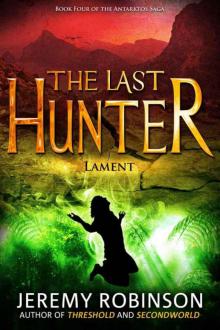 The Last Hunter - Lament (Book 4 of the Antarktos Saga)
The Last Hunter - Lament (Book 4 of the Antarktos Saga)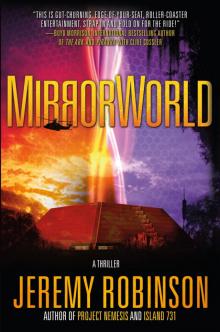 MirrorWorld
MirrorWorld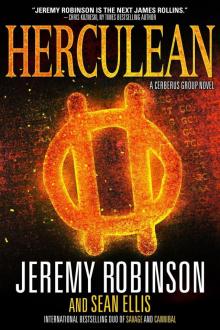 Herculean (Cerberus Group Book 1)
Herculean (Cerberus Group Book 1)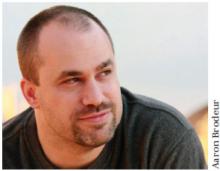 Island 731
Island 731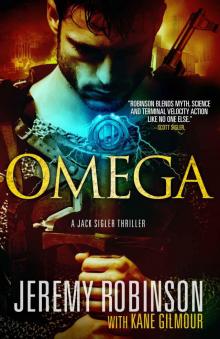 Omega: A Jack Sigler Thriller
Omega: A Jack Sigler Thriller Patriot (A Jack Sigler Continuum Novella)
Patriot (A Jack Sigler Continuum Novella)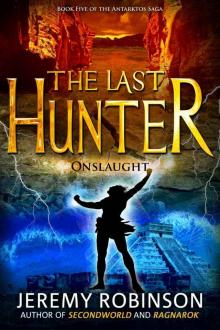 5 Onslaught
5 Onslaught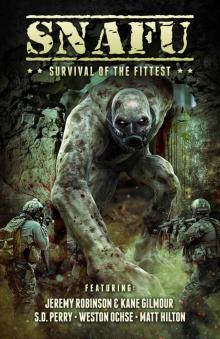 SNAFU: Survival of the Fittest
SNAFU: Survival of the Fittest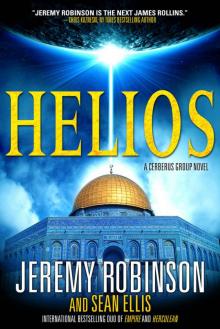 Helios (Cerberus Group Book 2)
Helios (Cerberus Group Book 2)